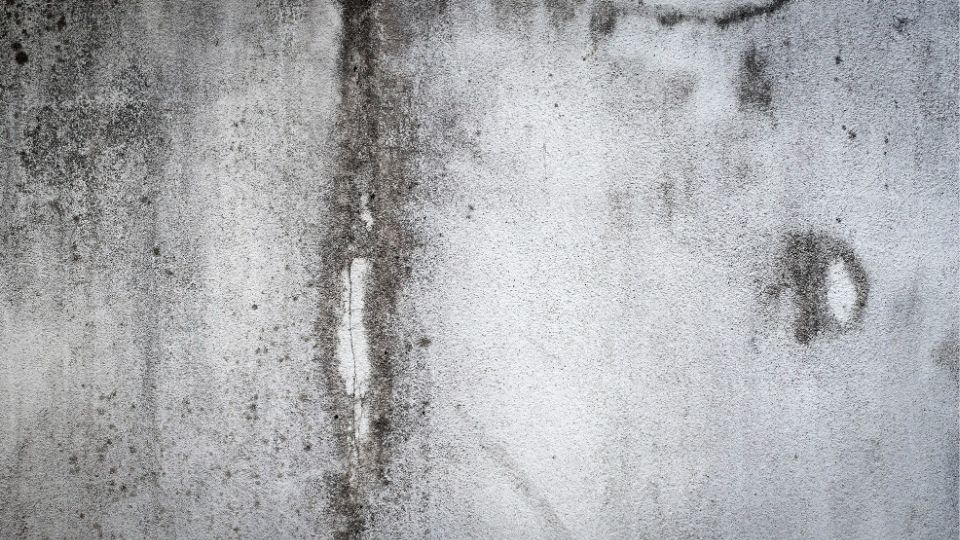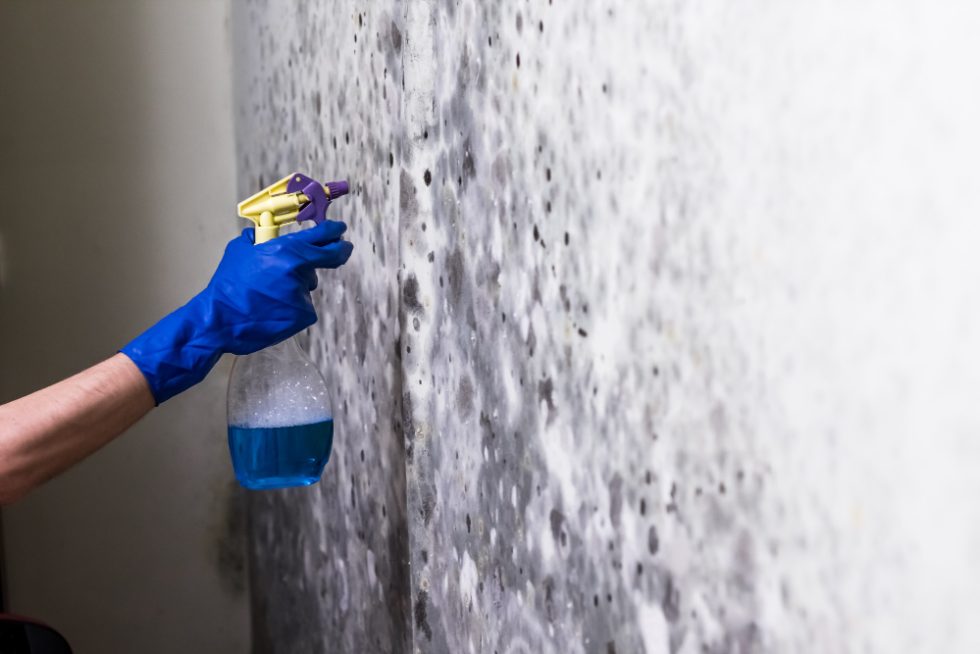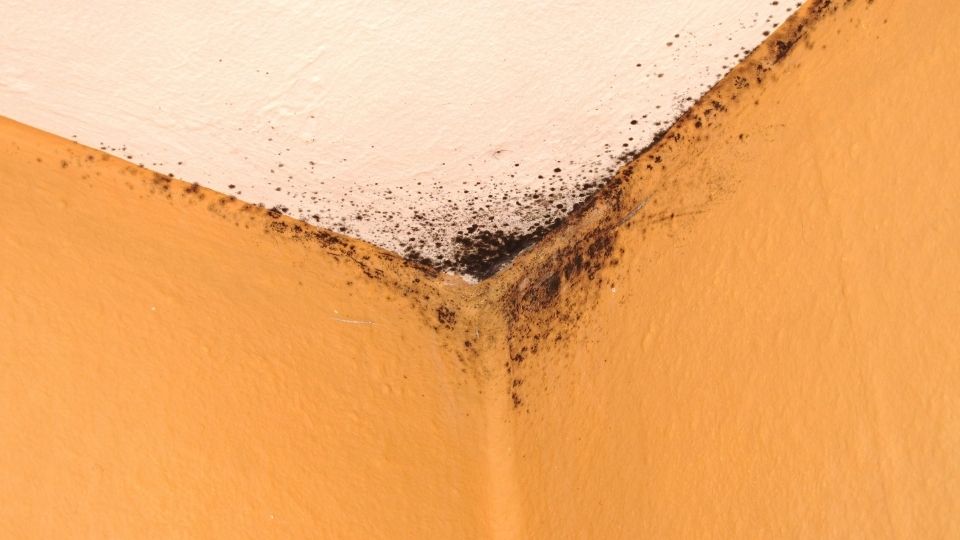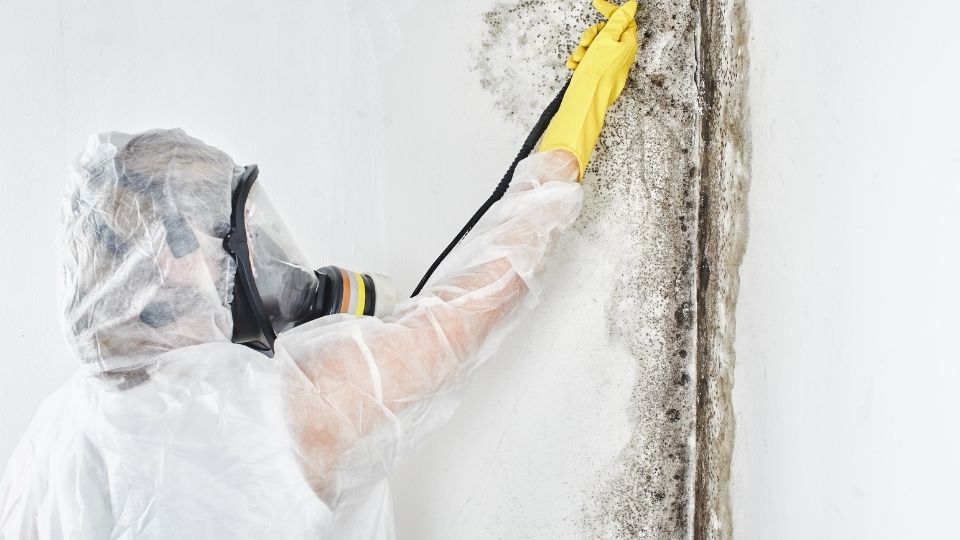
by Mold-B-Gone | Jan 21, 2022 | Mold Facts, Uncategorized
Mold spores are present everywhere, in both indoor and outdoor environments. When the conditions are right, they will begin to grow and spread. In this blog post, we will take a look at how long it takes for mold growth and spread. We will also discuss how you can prevent it from becoming a problem in your home or business.
Which Conditions Help Mold Spores Thrive?
Mold can grow in almost any environment. This is because it takes very little to thrive and most places have the essential elements. The following are some of the key conditions that help mold spores thrive:
- Moisture: One of the most important elements for mold growth is moisture. This can be from a leak, high humidity, or water damage.
- Food: Mold spores feed on organic matter like wood, paper, fabric, and dust.
- Darkness: Mold thrives in dark environments where it is not disturbed.
Preventing Mold Growth and Spread
The best way to prevent mold growth and spread is by keeping your environment dry and clean. You should also inspect your property for any potential sources of water damage. If you do find a problem, be sure to address it right away.
In addition to prevention, there are also some steps you can take to remediate mold growth and spread. This includes cleaning the affected area and removing any contaminated materials. If the problem is severe, you may need to call in a professional.
How Long for Mold Growth and Spread?
Mold growth and spread can happen very quickly or over a period of time. The following are some general timelines for different types of environments:
- Indoor environment: In an indoor environment, mold can grow in as little as 24 hours. It can also spread rapidly, reaching other parts of the home within 48 hours.
- Outdoor environment: Outdoor mold spores will not start to grow until they come into contact with moisture. Once they do, it can take anywhere from a few days to a week for them to start to grow.
It is important to note that these timelines are just general guidelines and there may be variations depending on the specific situation. If you are concerned about mold growth or spread, be sure to consult with a professional. They will be able to advise you on the best course of action for your property.
For more information on mold remediation in Atlanta, contact Mold-B-Gone.
Get more information on the health effects of mold by reading How Do I Know If Mold Is Making Me Sick?

by Mold-B-Gone | Dec 23, 2021 | black mold removal Atlanta
Black mold is a problem that can be found in many households, and it can be difficult to identify by sight alone. If you suspect the presence of black mold but aren’t sure if you have found it yet, don’t worry! There are some tell-tale signs that will let you know if the black stuff has set up shop in your home. Some people say they can smell black mold before they see it—but what does black mold smell like? Read on to find out more about the common odors associated with this type of fungus.
What Is Black Mold?
Black mold is a type of fungus that can cause many different health problems. It grows in wet, dimly lit areas and thrives on moisture. If you have black mold growing in your home or property, it could be wreaking havoc on your walls and ceiling while also causing respiratory issues for anyone who comes into contact with it.
How to Identify Black Mold Visually
Black mold can be identified by its black, furry appearance. However, if you’re not sure if the black stuff you’ve found is actually mold, there are some other ways to tell. Look for any areas where the wall or ceiling appears to be wet or damp and check for signs of condensation. If it’s been more than a week since you’ve had any precipitation, and there’s still water damage present, it’s likely that black mold is to blame.
How Does Black Mold Smell?
Some people say they can smell black mold before they see it. The odor associated with black mold is often described as musty, earthy, or mildew-like. If you notice a strong, dank odor that’s not necessarily unpleasant but isn’t familiar either, it might be coming from black mold spores—and your first step should be to contact the professionals at Mold-B-Gone for advice on next steps.
How Dangerous Is Black Mold?
When it comes to black mold, the danger isn’t in simply smelling or seeing it – exposure can cause serious health problems for you and your family. Symptoms of exposure may include allergies, an asthma attack, runny nose, watery eyes, and rashes on skin that has been exposed to black mold spores over time. Exposure to high levels of black mold spores can even be fatal.
If you think you might have black mold in your home, it’s important to take action right away. Mold-B-Gone is here to help. Contact us today for mold removal in Atlanta!
What are other signs you might have mold? Read: Top 10 Warning Signs of Black Mold Exposure!

by Mold-B-Gone | Dec 15, 2021 | Mold Information, Mold Removal
Mold and mildew are two words that people often interchange with one another. They are used to describe the growth of fungi on organic material, but they have some key differences. Both can be harmful to your health if you come into contact with them or breathe in spores they release into the air, but they require different approaches. Here’s what you need to know about mold vs. mildew.
What Is Mold?
Mold is a type of fungus that grows in moist, damp places. It thrives on organic material with weakened cell walls to break down and absorb nutrients from its surroundings. Mold can grow practically anywhere indoors where there’s plenty of moisture, including concrete, wood floors, drywall or sheetrock, countertops, or tiles made of stone or cement, fabrics like carpeting, and upholstery materials.
What Is Mildew?
What’s the difference between mold and mildew? Like mold spores floating through the air see an opportunity to attach themselves to surfaces, they come into contact with when it gets wet enough for them to flourish in your home. They smell musty but usually don’t release harmful toxins unless you breathe in their spores, which cause infections similar to other fungal diseases such as Valley Fever and Ringworm.
How to Get Rid of Mold and Mildew?
Both types of fungi can be removed with a gentle scrubbing action using soap, water, and elbow grease to strip away the spores attached to surfaces so they don’t spread or grow back. You may need special tools like brushes or mops if mold has grown into porous areas such as drywall which you cannot clean by hand.
For fabrics like drapes and carpeting that hold on to mildew smells even after cleaning, try adding some baking soda for more thorough deodorizing power before laundering them again in hot water since cold washing won’t remove stubborn odors caused by mildew residue left behind on fibers.
Is DIY Mold and Mildew Cleaning Safe?
If you are worried about the safety of cleaning mold and mildew yourself, don’t! Instead, turn to the professionals at Mold-B-Gone for mold cleaning services in Atlanta. We have the experience and know-how to safely remove these harmful fungi from your home without exposing you or your family members to dangerous spores. Contact us today for a consultation or to learn more about the processes and cleaning solutions we use!
Ready to learn more? Read: Top 10 Reasons You Need to Be Aware of Mold!

by Mold-B-Gone | Nov 16, 2021 | Mold Information, Mold Remediation
Mold can be a serious problem. It will not only make your home uninhabitable, but it could also cause health problems for you and your family. If you think there may be mold in your house, how do you confirm its presence? And how can you know if the presence is harmful? In this blog post, we will look at 8 ways to tell if there may be mold in your house as well as how to get rid of it!
Signs You Have Mold in Your House
- A musty smell that won’t go away. No matter how well you clean or the room perfumes you use, this keeps lingering. It might even get worse when your air conditioning is turned on.
- Black or dark spots on various surfaces of your home. This can look dry or slimy. Keep in mind that it won’t always be perfectly black. In many cases, mold is a dark green or even a brown.
- Fuzz growing on surfaces or near windows. This mold is likely easy to address but still is a concern.
- Spots appearing on walls and ceiling that may look like watermarks. Whether these are actual watermarks or mold growth, you’ll need help as excess moisture almost always means mold growth.
- Bubbling wallpaper. This often indicates excess moisture behind the paper or in the wall, which means mold is lurking.
- Water pooling around the foundation of your house. If you notice water collecting, there is likely an issue with how well your gutters are working or how much rainwater they’re allowing into the basement. Either way, this can lead to mold growth in damp conditions, which will need to be addressed by a professional team of experts!
- A musty smell coming from under sinks and cabinets where appliances like refrigerators may be located. It’s possible that these smells could come from food gone bad so keep an eye out for other signs before assuming it’s mold – especially if the appliance isn’t even turned on!
- Sagging floors or ceilings. While not always related to mold problems specifically, this could be a sign of moisture damage so it’s best to get an expert in your home to check things out.
What to Do if You Notice Signs of Mold in the Home
If you notice any of these signs, how do you know if there’s really mold in your house? The only way to be sure is to have an Atlanta mold inspection expert come and test. While this costs more than going DIY, it is the only reliable method.
If you are in the Atlanta area, Mold-B-Gone is the mold remediation service to turn to. For more information or to schedule our mold cleaning services in Atlanta, contact us today.
For more on this topic, read: How Do I Know if Mold Is Growing in My Basement?

by Mold-B-Gone | Nov 6, 2021 | Mold Removal
Did you know that mold can grow on a variety of surfaces, including wood, drywall, concrete, and even plastic? Mold is typically found in areas with high moisture levels, such as kitchens and bathrooms. Due to its unpleasant nature and potential health risks, you’ll want to clean mold off your walls when you find it. Here is a step-by-step guide to going DIY with getting mold off a wall.
If you have been struggling to remove mold from your walls yourself or if the problem has grown out of control, then it might be time to turn to our mold cleaning service in Atlanta.
How to Remove Mold From Your Walls
The first step is to clear the area around the wall. Mold spores will latch on to anything they can, so if you get them on your furniture or rugs, they will take root. If you have wall-to-wall carpet, cover it. Everything you can move, push to the other side of the room.
Next, try cleaning the wall with an antimicrobial solution. With certain types of mold, this will get the job done. Then, you clean up the area, put things back in place, and wait to see if this address your mold problem.
If the mold returns, you need to dig deeper. Use coarse-grit sandpaper to strip off all of the paint around the moldy area. Then wipe down the drywall using soapy water and an antimicrobial solution. Finally, spray it with disinfectant before letting everything air out. Once it dries, you can repaint.
Need a little more guidance? Read: What Can I Do If I Have Mold In My Apartment?
What if the Mold Keeps Coming Back?
Mold doesn’t like light and air. If you can get these two things into the affected area, mold will have a hard time growing there again after it is removed completely. You also might need to cut a hole into your wall to clean behind the drywall.
If this sounds too complicated, let us help! We come equipped with everything we need so you don’t have to worry about how to remove mold from wood, drywall, concrete, and more. We are your experts in mold removal as well as Commercial Mold Removal in Atlanta.





